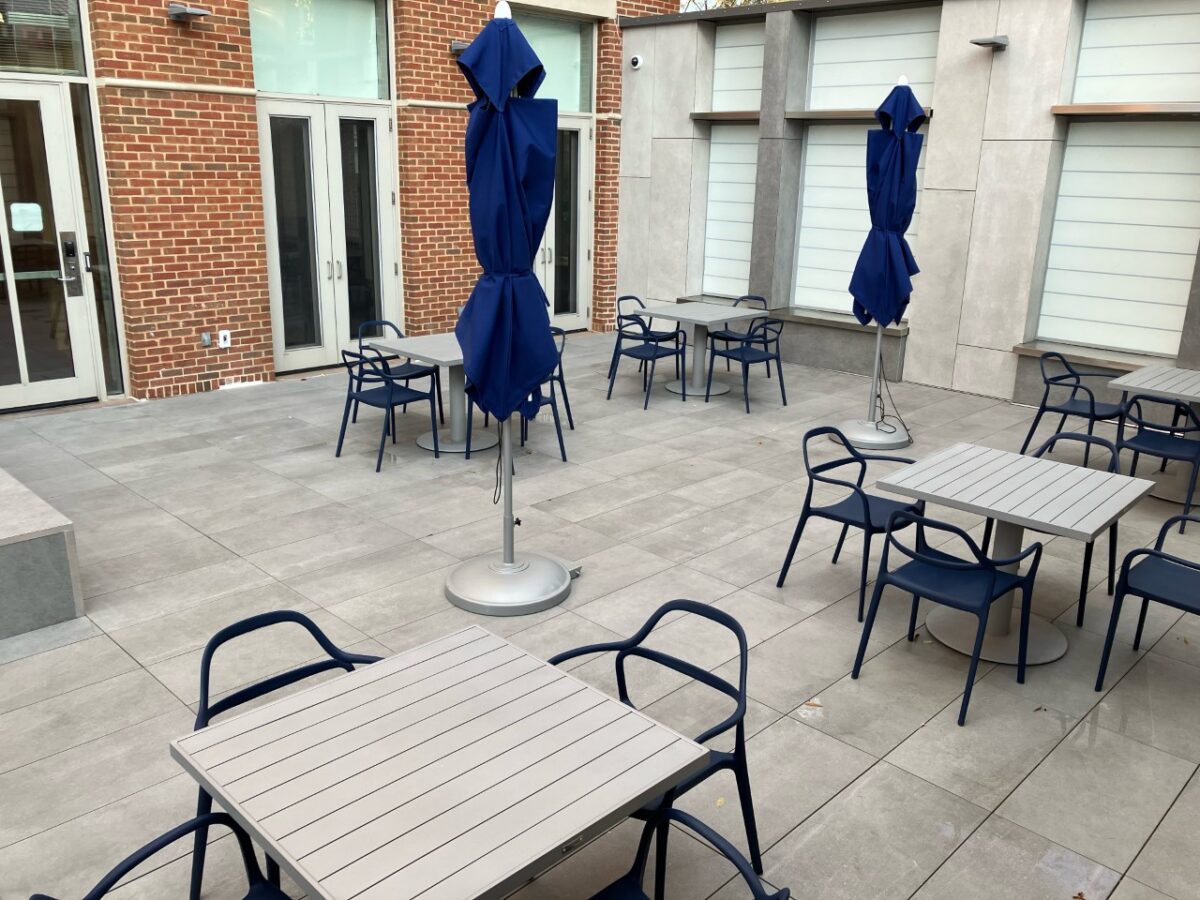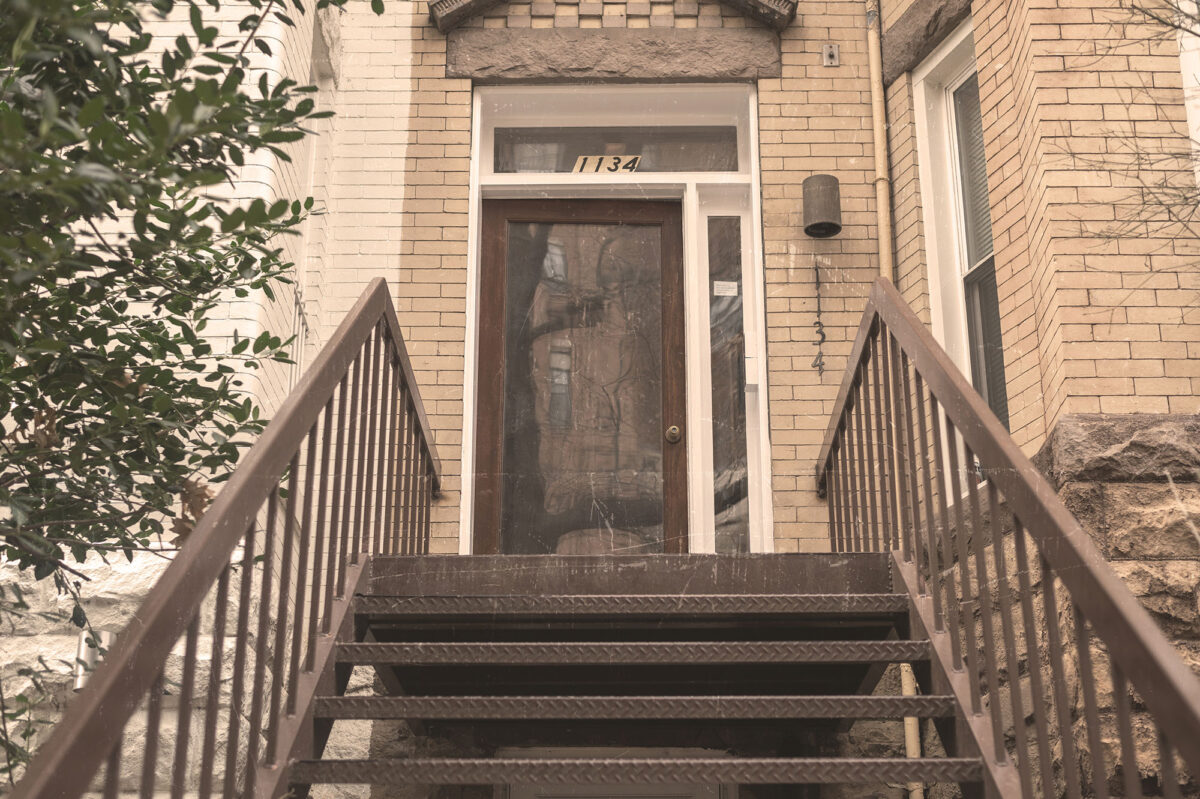Your Daily Phil: Reimagining the sukkah at Yale + Granting survivors’ wishes
Good Monday morning!
In today’s edition of Your Daily Phil, we report on a new sukkah design competition being held by Yale University’s Joseph Slifka Center for Jewish Life and debut a new investigative series on the unsolved murder of a Washington, D.C., rabbi in 1984. We also feature an op-ed by Rabbi Amanda Schwartz. We’ll start with a report on an initiative to grant the wishes of Holocaust survivors in Israel.
A joint venture by Israel’s Health Ministry and the Ezer MiZion aid organization has granted the wishes of more than 1,600 Holocaust survivors in the past four years, the director of the initiative told eJewishPhilanthropy’s Judah Ari Gross ahead of Yom HaShoah, Israel’s Holocaust Remembrance Day.
Adina Englard, the chief social worker in the Health Ministry’s Geriatrics Department, developed the idea for Mishalat HaLev, meaning “Wish of the Heart,” after seeing that many of the Holocaust survivors living in state-run facilities rarely if ever left the building because of their disabilities, Mishalat HaLev director Naomi Mizrahi told eJP. “They saw the Holocaust survivors in these institutions weren’t able to do what they want. People who are physically disabled, who need a special car for a wheelchair or even an ambulance in some cases. They live their lives in a cycle, based on the schedule of the old-age institution or geriatric hospital,” Mizrahi said.
The “wishes” that the organization grants are, on the surface, relatively modest: visiting the Western Wall, attending a concert or going to the beach. “One woman said she just wanted to go to the supermarket, something that’s routine for most people. But for someone who’s disabled, who is living in a geriatric hospital, who needs an ambulance to go anywhere, that’s very complicated,” Mizrahi said.
While the wishes themselves bring joy to the survivor, Mizrahi said the real value of the initiative is that it gets the person to think about what they want, what would make them happy. “The hard part is to make the person dream. A lot of them don’t dare to dream, to think beyond the day-to-day. This allows the person to do something different, to go out. They can think, ‘What do I want? Where do I want to be?’” she said. “And only then comes the second part, ‘How do we make it happen despite their disability?’”
Ivy huts


The Joseph Slifka Center for Jewish Life at Yale University recently launched a competition to design a new sukkah for this coming Sukkot, a structure that would be beautiful, inspiring and in line with halachic precepts. Having started Slifka’s inaugural artist residency earlier this year, organizers Aviva Green and Rabbi Jason Rubenstein wanted to build on the center’s legacy of fostering Jewish creativity, Daniela Cohen reports for eJewishPhilanthropy.
Functional and beautiful: “We were talking about what it would look like to have this new sukkah be really focused and grounded in the arts, to not have it be just a functional system that follows all of the rules that it needs to comply with. It’s also an architectural project, an artistic and aesthetic add-on to the space and something that is both grounded in this artistic creative practice and also in sort of the more metaphorical themes that come about,” Green told eJP.
Greater meaning: After speaking with an architect, Green and Rubenstein decided to organize a learning session led by Slifka’s associate chaplain, Rachel Leiken, to provide prospective applicants with a clearer idea of potential concepts, like the clouds of glory, the sukkat shalom (shelter of peace), the inversion of the ephemeral and permanent and the harvest festival. “She talked a lot about the idea of Sukkot as a harvest holiday and what it means to have this temporary dwelling as a part of the harvest,” Green said. “And she also talked about the different ideas of how this building is meant to be temporary. And this sort of like play between a permanent structure and a temporary structure and how that goes into the ways that … people dwell in it and also the way that it’s built.”
What is a Hillel?: The winner will need to travel to the Slifka Center in New Haven, Conn., in the fall to begin work on the structure, as the goal is to have it ready before this year’s Sukkot. In Rubenstein’s view, this type of competition showcases how Slifka conceptualizes the role of a Jewish institution. “If your definition of what a Hillel is, is an entity that puts on programs for students, you would probably never do anything like this,” he said. “When you start to actually take a step back, we’re stewards of a place… and part of our responsibility to the Jewish community is to actually create ways for artists to create beautiful things that people come to.”
An open door
Who Killed Kesher’s Rabbi?


Note: Below, we preview the first installment of a new investigative series about the 1984 unsolved murder of Rabbi Philip Rabinowitz in Washington, D.C., by Gabby Deutch for eJewishPhilanthropy’s sister site Jewish Insider. Read the full story here.
The door was ajar.
That was the first thing Howard Smith noticed when he arrived at the pale brown townhouse on 25th Street NW, a stop he did not intend to make on the cold, clear morning of Feb. 29, 1984. The home sat just across the M Street Bridge and a short walk from Georgetown in Foggy Bottom, but it was located on a quiet, low-key block that felt a world away from the tony homes in the popular Washington neighborhood.
Smith, an up-and-coming astrophysicist working at the U.S. Naval Research Laboratory, was already running late for work, but that wasn’t unusual for him that year. His mother had died a few months before, and Jewish law dictates that the immediate family members of the deceased should recite the Mourner’s Kaddish prayer every day for 11 months following the death. Each morning, he walked to Kesher Israel Congregation, a small Orthodox synagogue in Georgetown, and joined its daily minyan, or prayer service. His colleagues knew that he often arrived at the office after 9 a.m.
On that day, he wouldn’t get to work until well into the afternoon. First, he would make a gruesome discovery that would shock Washington and reverberate in Jewish communities around the world.
Normally, the congregation’s longtime rabbi, Philip Rabinowitz, would arrive before the morning prayers started, but sometimes — when the assembled group was especially prompt — he got there a few minutes late. Rabinowitz never skipped the service entirely.
The morning minyan required a prayer quorum of 10 men, and that morning, only nine men showed up, with the rabbi nowhere to be found. Someone called Rabinowitz to see if he could come to fill out the group. When he didn’t answer, the congregants grew concerned.
Most of them had to head off to work or to drop their kids at school. Smith, along with a Department of Energy attorney and two of the synagogue’s unhurried retirees, drove the five blocks to Rabinowitz’s home and walked up to the door.
Smith paused when he saw that the door was not closed. The rabbi would not purposely have left it unlocked; he always kept it dead-bolted shut, fearful of intruders.
Something was wrong.
Connectedness


“The Talmud teaches that ‘Whoever saves a life, it is as if they have saved a world.’ The recent findings from the Centers for Disease Control and Prevention’s youth behavior risk survey is a terrifying reminder of how the lives of many teens in this country are at risk,” writes Rabbi Amanda Schwartz, family life director at Judaism Your Way in Denver, in an opinion piece for eJewishPhilanthropy.
Many students consider suicide: “The study found that, ‘22% of high school students seriously considered attempting suicide during the past year.’ This number is far higher in girls and LGBQ+ teens. Even more striking is the number of teens who reported feeling sad and hopeless every day. The report makes it clear that our teens are hurting and they need a lifeline.”
Lifelines: “One such lifeline proposed by the CDC is creating a sense of connectedness, which can ‘help reduce high-risk substance use and mental health issues, and help keep students from committing or being victims of violence.’ An amazing opportunity already exists for Jewish students to feel this sense of connection and belonging; the Be Mitzvah process. Yet, to create this feeling for belonging, the Be Mitzvah process requires more flexibility.”
Worthy Reads
Spiritual Resistance: To mark 80 years since the Warsaw Ghetto Uprising, the Yad Vashem Holocaust Remembrance Center will focus on Jewish resistance, of all types, for Yom HaShoah, reports Matt Lebovic for The Times of Israel. “‘Not all resistance was physical, and spiritual resistance was even more widespread than physical fighting because everyone and anyone could practice it regardless of their circumstance or resources,’ said Yad Vashem spokesperson Simmy Allen… ‘Anyone who managed to helped their fellow Jew during the Holocaust, by sharing their measly food rations, picking up the slack of someone who couldn’t meet their daily labor quotas, or creating art during this horrific time, resisted and did not give up.’” [Times of Israel]
Around the Web
Jewish content creators have amassed 3 billion views on #JewishTikTok, notably more than other social media platforms…
An annual report by Tel Aviv University’s Center for the Study of Contemporary European Jewry and the Anti-Defamation League found that 2022 saw a significant spike in antisemitic attacks across the globe, particularly against Haredim and other visibly Jewish people…
UnXeptable, a group of Israeli expats opposed to the government’s proposed judicial overhaul, calls on the Jewish Federations of North America not to invite Prime Minister Benjamin Netanyahu and Knesset Member Simcha Rothman, one of the architects of the reforms, to appear at next week’s General Assembly, claiming that doing so would “parade false unity and pseudo-shared values”…
Canadian-Israeli billionaire philanthropist Sylvan Adams was selected as one of 12 torch-lighters for next week’s national Yom Ha’atzmaut event on Mount Herzl in Jerusalem…
The U.K.’s Metro newspaper highlights a newly expanded London-area café, run by the British Jewish nonprofit Jami, which seeks to provide assistance and community to individuals experiencing mental health challenges…
The number of Holocaust survivors living in Israel stands at nearly 150,000, including 521 new immigrants from the war in Ukraine, according to statistics published on Sunday by the Holocaust Survivors’ Rights Authority, ahead of Israel’s annual Holocaust Memorial Day, which begins Monday evening…
Ebony Twilley Martin has been promoted to executive director of Greenpeace USA. Martin has been co-executive director since 2021 and is the environmental Grerenpeace’s first Black woman leader…
Hedda Kleinfeld Schachter, who with her husband, Jack, built Kleinfeld bridal, died at 99….
Pic of the Day


Magen David Adom volunteers pose for a photograph in front of the Mausoleum at Majdanek on Sunday during a visit to Poland ahead of Israel’s Holocaust Remembrance Day, which starts tonight.
Birthdays


Offensive lineman for the NFL’s Tampa Bay Buccaneers for seven seasons, he retired in 2022, Alexander “Ali” Marpet…
Retired Los Angeles cardiologist and active Yiddish enthusiast, Martin Bobrowsky, MD… NYU professor and noted legal scholar, he spent 38 years on the faculty of University of Chicago Law School, Richard Allen Epstein… Marketing manager at Allied Interpreting Service in Los Angeles, he is also affiliated with Tel Aviv law firm Guy, Bachar & Co., Barry Schreiber… Sports historian, author, publisher and cultural commentator, he has been the official historian for Major League Baseball since 2011, John Thorn… Talk radio host best known for his work on NYC’s sports radio station WFAN, his nickname is “The Schmoozer,” Steve Somers… Rebbe and leader of the Pupa Hasidic group, Rabbi Yaakov Yechezkiya Greenwald… CEO of B’nai B’rith International, Daniel S. Mariaschin… Dean of Beth Medrash Govoha in Lakewood, N.J., Rabbi Aryeh Malkiel Kotler… French businessman, based in Geneva, he and his brother own the House of Chanel perfume company as well as holdings in vineyards and a thoroughbred horse racing stable, Gérard Wertheimer… Elizabeth H. Scheuer… Rabbi of Beth Hillel Temple in Kenosha, Wis., since 1985, her brother is a former U.S. senator from Wisconsin, Dena Feingold… Actress, screenwriter and film director, Daphna Kastner… Winner of two Super Bowl rings during his career with the San Francisco 49ers, he is now a physician and an inductee in the National Jewish Sports Hall of Fame, Dr. John E. Frank… Director of Rutgers University Press, Micah Kleit… Professor of politics at NYU and co-author of “The Monkey Cage,” a politics and policy blog at The Washington Post, Joshua A. Tucker… Congressional editor for The New York Times, Julie Hirschfeld Davis… Member of the Alaska Legislature, first in the Assembly and then in the state Senate, Jesse Kiehl… Executive director at Morgan Stanley, Nadya Belenkiy… New York bureau chief for Bloomberg News, Shelly Banjo… Southern California-based regional director at The Washington Institute for Near East Policy, Miri Katz Belsky… Press secretary for Senate Majority Leader Chuck Schumer, Angelo Roefaro… Senior communications manager at the Center for Responsible Lending, Matt Kravitz… Managing director at Bully Pulpit Interactive, Alex Kellner… Grammy Award-winning singer-songwriter, Avriel “Avi” Benjamin Kaplan… Foreign policy speechwriter and national security communications advisor for VPOTUS Kamala Harris, Dean Lieberman… Member of the Baltimore City Council, Isaac “Yitzy” Schleifer… Enforcement counsel at the Missouri Ethics Commission, Brian T. Earll…








